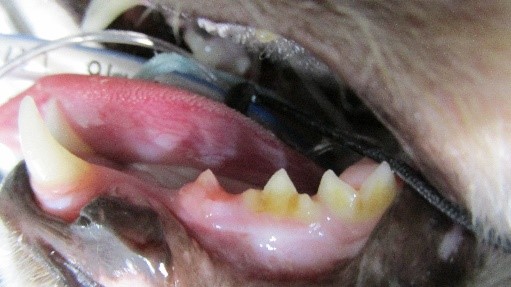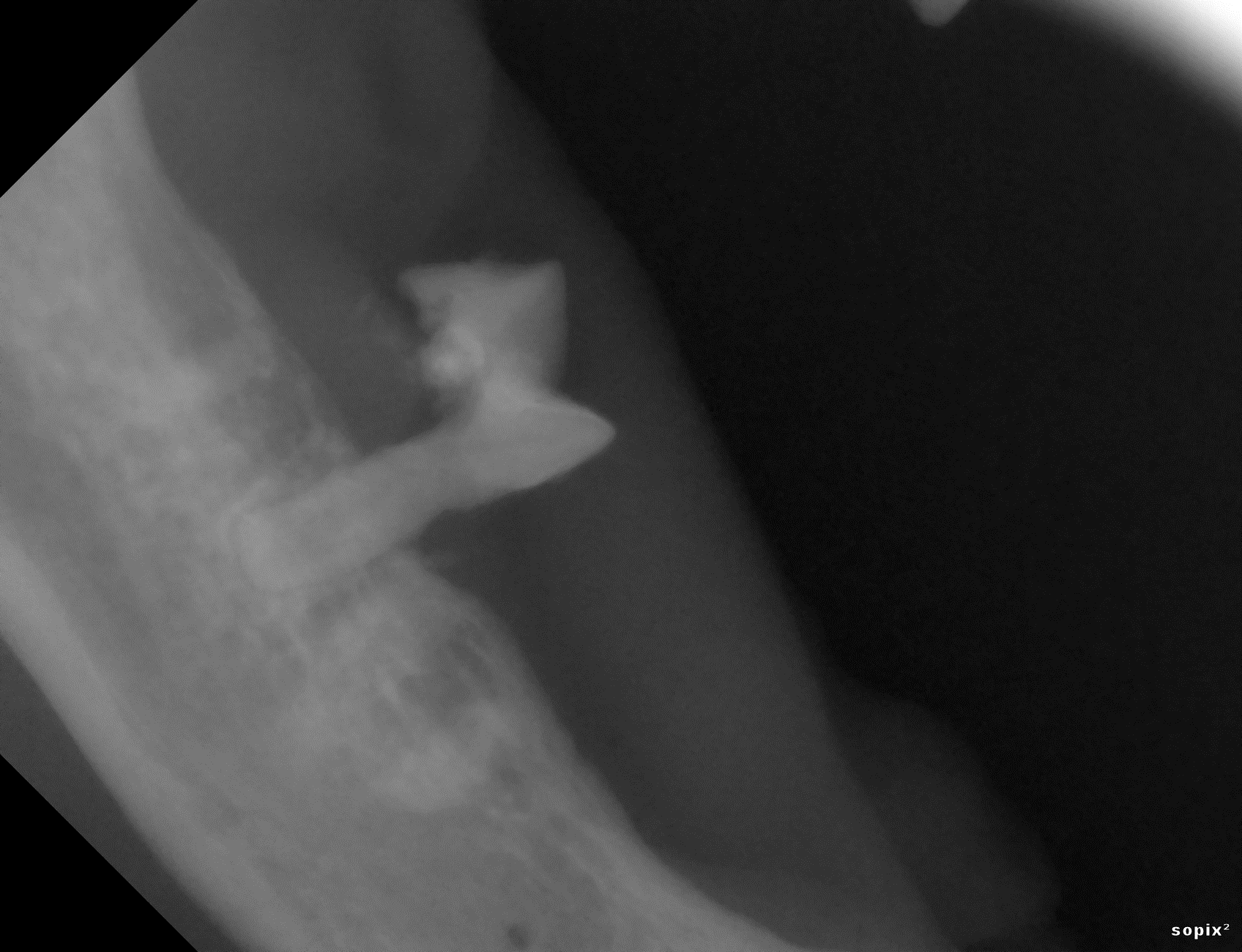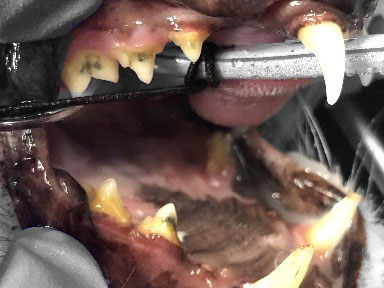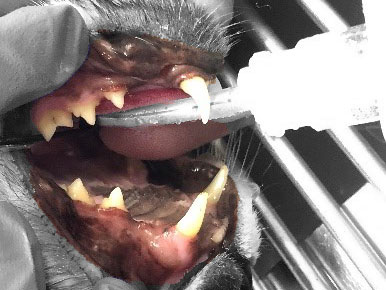A healthy mouth equals a healthy happy cat
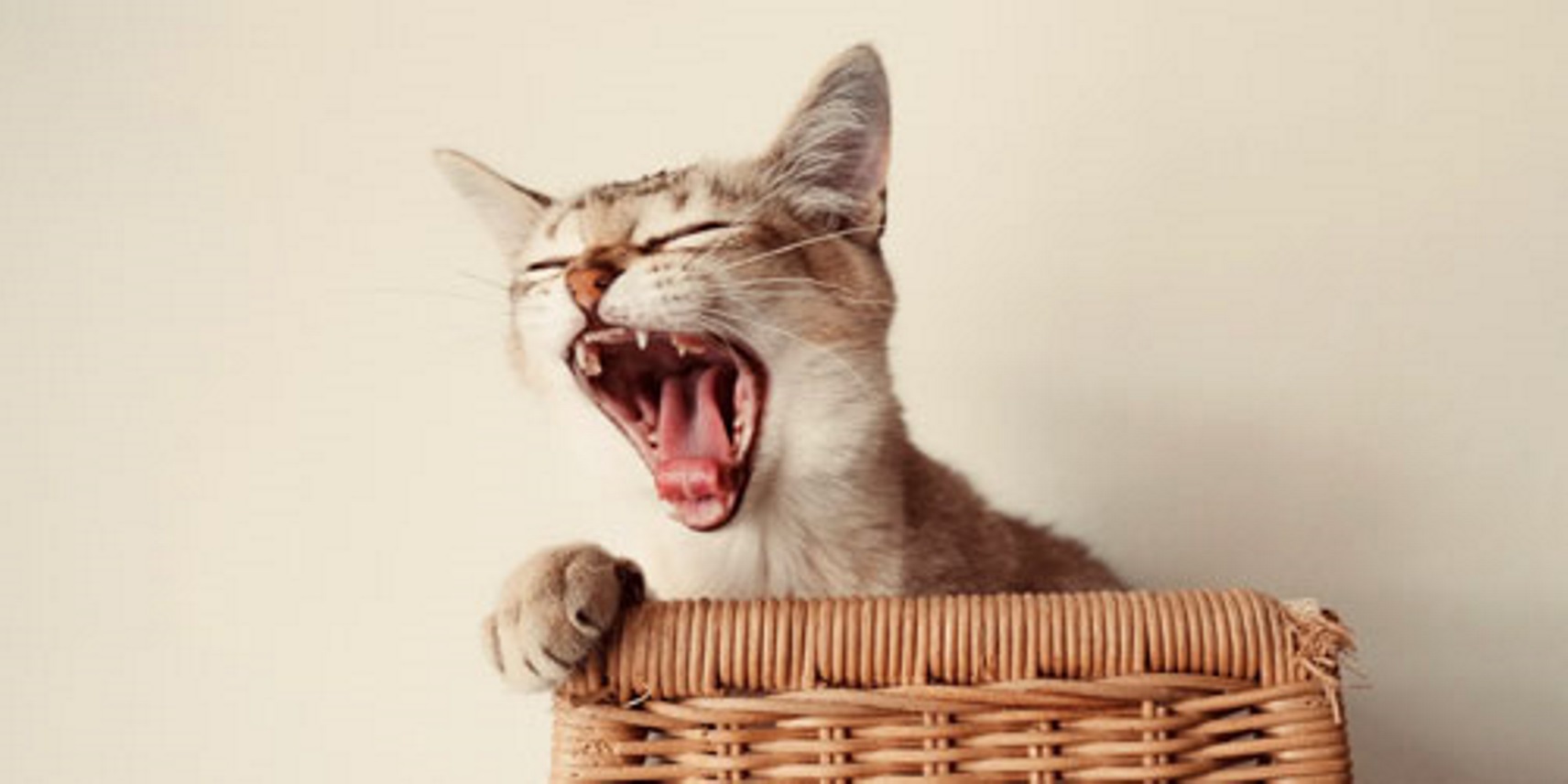
The Canberra Cat Vet is a cat only dedicated veterinary hospital, they have a wealth of knowledge about cat health. They say "a healthy mouth equals a healthy, happy cat".
In nature, cats hide pain so that predators don’t notice them and rivals cannot beat them to resources. As a result signs of disease, especially dental disease, are often subtle and can be difficult for pet owners to identify themselves.
In our homes, this is a huge disadvantage. We don't often look in our cats' mouths so we don't realise that they are hiding gum disease, plaque, tartar or even holes in their teeth.
It is estimated that over 80% of cats and dogs over 4-years old have developed some form of dental disease. Dental diseases in cats and dogs can cause bad breath and pain and in some instances infections that could result, if not identified and treated in the pet becoming seriously ill.
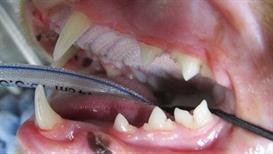
A cat with plaque build-up, the bacterial build-up resulting in gum illness and soreness.
Plaque accumulates at the gumline because of inadequate chewing material. Plaque calcifies into tartar and tartar rubs against gums, causing inflammation and infection, and sometimes tooth loss. Genetics also predisposes some individuals to plaque and tartar accumulation, just like in humans.
Some cats’ teeth dissolve, weakening the teeth and causing them to break. These dissolving lesions are called FORLS (Feline Oral Resorptive Lesions). Specialist veterinary dentists have suggested many causes of FORLS but none have been proven. Extraction
of affected teeth relieves pain immediately.
Dental disease doesn’t just affect the mouth. Bacteria spin off into the bloodstream from inflamed gums and lodge in kidneys, heart valves, liver and other organs. While the immune system copes with small challenges, over time organs deteriorate under the relentless assault of bacteria.
A cat with FORLS |
An Xray of FORLS |
Cat owners are often surprised when vets recommend dental work for their cats. They are even more surprised - and delighted! - at how happy and playful their cats are after any bad teeth are removed and the remainder scaled and polished. It is only after the dental disease is treated and their cats return to their playful former selves that carers realise how much pain they were in.
Cats are determined to hide any sign of pain or discomfort from us. The observant owner may notice one or more of the following if they are really on the ball:
- not grooming properly, leaving coat matted, loose or scurfy
- eating on one side of mouth or tilting the head to one side when chewing
- resenting stroking around the face/jaw
- not enjoying handling at all
- keen hunter not interested in hunting any more
- keen warrior not interested in fighting any more
- not wanting to play with tug toys
- throwing food to back of mouth to chew
- bringing unchewed, unlubricated food up within 10 minutes of a meal
- hesitating at food bowl even though clearly hungry
- not crunching kibble
- preferring moist to dry food when used to prefer dry to moist and vice versa
- bad breath
- eating only a little but going back to the bowl often
- drooling
- pawing mouth
- swollen face
- bleeding from mouth
- grinding teeth
Keep your cats' teeth healthy by giving them cooked meat strips and chunks, treats designed to clean teeth, or a special dental health diet to chew on.
Dental disease is preventable and proactive care is the best way to ensure that your pet enjoys a healthy pain-free mouth. If the overlooked dental disease has serious health and wellbeing implications for pets.
A range of dental products is available to pet owners and Your vet will advise you of the most appropriate product for your pet. We recommend regular check-ups and scale and polishes supplemented by teeth brushing, dental diets designed promote oral health, dental cleaning treats, chews and toys.
The images below show the benefits of taking your pet to the vet:
Tartar before treatment |
After treatment, better breath – less bacteria |
We know from our own dental experiences that keeping our teeth brushed results in fewer visits to the dentist. We are healthier and happier with a comfortable mouth and so are our pets. Dental disease does not improve with time and will never fix itself. Prevention is better than cure but when treatment is necessary it’s always best to do it as soon as possible, this increases the likelihood of success and potentially also reduces the effects of pain and discomfort and is invariably more cost-effective.
Your veterinarian will examine your pet’s mouth and teeth during the routine annual check-up to identify any emerging dental disease. Optimal health and quality of life depend on good oral care. These annual checks are an ideal opportunity for you to find out if your pet has an existing problem that has gone unnoticed.
It is important to note, that only some parts of the gum and teeth are visible to the veterinarian even in the most tractable pet. This makes some aspects of the dental disease difficult to detect If your vet is worried they will recommend a thorough check of the pet’s teeth under a general anaesthetic and, if necessary, dental X-rays. As part of this treatment, your vet will be able to remove any severely affected teeth and clean and polish all others.
Your pet will also thank you, possibly not during their trip to the vet but certainly afterwards. Dental conditions can be debilitating and detract from your pet’s happiness and quality of life. If left untreated they have serious long-term health consequences.
Cats and dogs live longer, more comfortable lives with a healthy mouth. Your pets will thank you for it and live happier lives.
Vets Choice provide two types of dental cover, to suit you and your pets needs. Please see our dental insurance coverages, and get a quote today!
Dr Kate King is passionate about cats and cat medicine. She is a member of the cat medicine chapter of the of the Australian and New Zealand College of Veterinary Scientists. Kate believes that prevention is better than cure and recommends that pet owners seek the guidance of their vet in optimising their pets’ oral hygiene and overall health.
